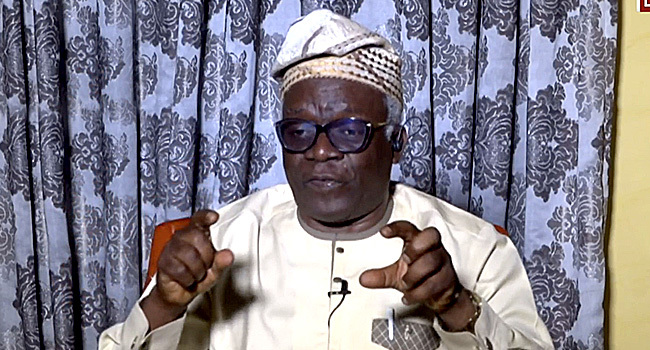Falana: Yar’Adua Reversed PH Refinery Sale Over Obasanjo’s Procedural Misstep
Femi Falana, a human rights lawyer, says former President Umaru Yar’Adua rejected the sale of the Port Harcourt and Kaduna refineries to a consortium led by Dangote Oil because his predecessor, Olusegun Obasanjo, did not follow due process when he offered to sell the national asset.
On Thursday, Obasanjo said the late president rejected a $750 million offer from Aliko Dangote, chairman of Dangote Group, to manage the Port Harcourt and Kaduna refineries in 2007.
Obasanjo said he had plans to address the challenges faced by the Port Harcourt, Warri, and Kaduna refineries during his presidency.
However, in a statement on Friday, Falana said Obasanjo had sold a 51 percent stake in the Port Harcourt refinery to Bluestar Oil for $561 million.
According to Falana, Bluestar Oil was a consortium comprising Dangote Oil, Zenon Oil, and Transcorp.
He also said Yar’Adua believed that the deal was not in the nation’s best interest and did not follow due process.
“Under the Privatisation and Commercialisation Act, the Vice President is the chairman of the National Council on Privatisation (NCP), a body that is charged with overseeing the privatisation and commercialisation of public enterprises,” Falana said.
“In utter breach of the Act, President Olusegun Obasanjo sidelined Vice President Atiku Abubakar and took over the privatisation of a number of public enterprises.
“On May 28, 2007, in a similar transaction, 51% of Kaduna Refinery was sold to Bluestar Oil for $160 million.
“Before the deal, President Obasanjo had acquired large shares in Transcorp through ‘blind trust’.
“Many interest groups in the country questioned the legal validity and moral propriety of the sales as they were consummated in the last days of the Obasanjo Administration.
“The two powerful trade unions in the oil industry —the National Union of Petroleum and Natural Gas Workers (NUPENG) and the Petroleum and Natural Gas Senior Staff Association of Nigeria (PENGASSAN) kicked against the privatisation of the two refineries on grounds of conflict of interest and lack of due process.
“They also alleged that the nation had been shortchanged as the shares acquired in the Port Harcourt refinery for $516 million were worth US$5 billion.”

